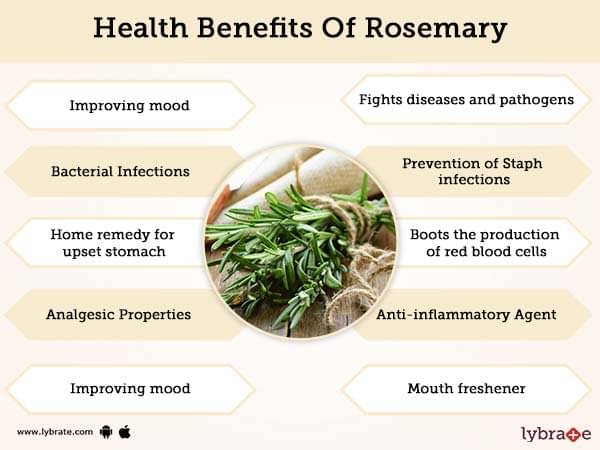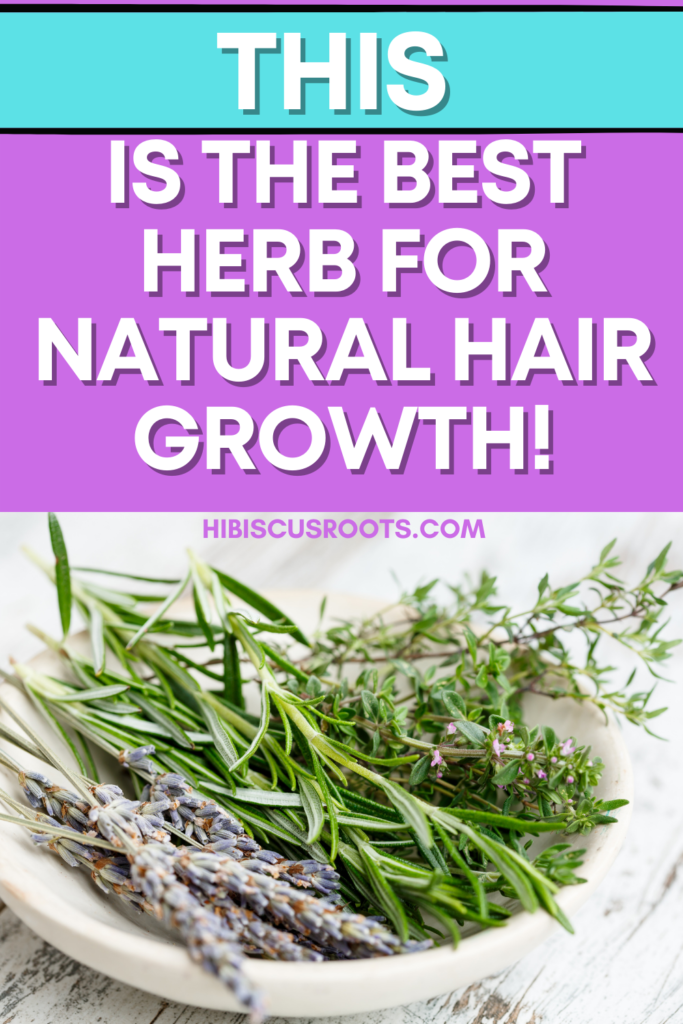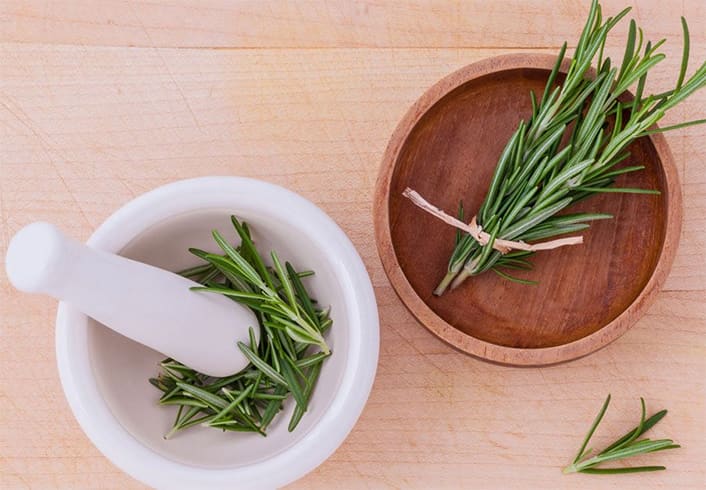Table Of Content

Dr. Ope Ofodile is a board-certified cosmetic and medical dermatologist at Dermatology and Surgery Specialists of North Atlanta. Dr. Marnie B. Nussbaum is a board-certified dermatologist specializing in non-invasive aesthetic rejuvenation. So, are those TikTokers onto something or should the savory herb be left as a dinner seasoning? Let’s comb through what’s fact or fiction with dermatologist Shilpi Khetarpal, MD. Our experts continually monitor the health and wellness space, and we update our articles when new information becomes available. Addison Aloian (she/her) is the assistant love & life editor at Women’s Health.
How Rosemary Oil May Help Hair Growth
If you notice any skin or airway irritation after applying rosemary oil to your skin or using it as an aromatherapy treatment, stop using it and contact a medical provider for advice. Rosemary essential oil is a more concentrated product that can be found online and in health food stores. It can be used to create your own skincare and as an aromatherapy treatment.
Should I Use Rosemary Oil for Hair Growth?
She’s an authority in all categories, but is an expert when it comes to hair oiling, thanks to years of personally researching and testing different hair oils to grow her thick hair. While hair oiling is generally safe, there are some potential risks to keep in mind. First, “leaving hair oil on for too long can lead to occlusion of the follicles and can contribute to seborrheic dermatitis,” says Dr. Spann. So, if you sleep with it overnight, make sure to wash yours out after 8 to 10 hours with shampoo. And if you notice your scalp starts to feel irritated, flaky, or itchy—aka the opposite of how you want your scalp to feel after oiling—stop oiling ASAP and make an appointment with your dermatologist.
Ethique Curl Defining Solid Shampoo Bar
Does rosemary oil for hair growth really work? We asked 3 dermatologists to find out - CNN Underscored
Does rosemary oil for hair growth really work? We asked 3 dermatologists to find out.
Posted: Thu, 11 Jan 2024 08:00:00 GMT [source]
This Medical News Today Knowledge Center feature is part of a collection of articles on the health benefits of popular foods. It grows best in full sun (at least six hours daily of sunlight) in locations with well-drained soil, whether it’s a garden bed or large pot. Yes, although it’s typically cooked with or steeped to make herbal tea.

It is also important to always do a patch test before trying a new essential oil. Beth Gillette is the beauty editor at Cosmopolitan with five years of experience researching, writing, and editing hair stories that range from shea butter for hair to shampoos for oily hair. She’s an authority in all hair categories, but is an expert when it comes to rosemary oil for hair. After interviewing experts and researching up-to-date info on rosemary oil for hair, she tested it for two months on her own short, fine hair. Rosemary oil is extracted from the leaves of the rosemary plant, which is native to the Mediterranean area. It's the same fragrant rosemary you season your veggies and garnish your cocktails with and is often considered an aromatic herb, like basil, lavender, and sage.
If you are experiencing hair loss or hair thinning, it is always best to see a board-certified dermatologist to evaluate the type of hair loss. Hair growth results showed that the oleogel continuing rosemary oil had higher effects than cedarwood. The rosemary oil oleogel was found to have similar effects as minoxidil. There are a few advantages of using a shampoo bar instead of a packaged bottled shampoo. Menthol can seriously negatively affect the breathing of an infant or small child and should never be applied to their face or allowed to be inhaled by them.
The Best Products With Rosemary Oil
Some studies recommend rosemary oil to encourage hair growth or to slow hair loss. Sam Peters is a seasoned commerce writer and editor with over five years of experience covering beauty, fashion, and lifestyle topics. For this piece, she consulted dermatologists and hair experts about the benefits of rosemary oil. Results showed that rosemary essential oil was just as effective as minoxidil. During the process, it helped the side effect of itchy scalp more successfully than minoxidil.
Rosemary isn't just an herb used to season your food — it can also offer some major beauty benefits. Rosemary oil can be applied directly to your hair strands (it won’t cause damage), but it should be massaged into your scalp if you’re looking for the potential hair-growth benefits. Just note that if you have fine hair, you’ll probably prefer to massage the oil in before bed, tie your hair up while you sleep, then rinse the next morning with a clarifying shampoo to get rid of any greasy residue. Or, if you want to use it during the day, massage it on and pull your hair back into a sleek bun with a boar-bristle brush and a couple hair elastics to make the ~grease~ look purposeful.
Give rosemary oil a try and see the difference it can make for your hair growth journey.. To use your homemade rosemary oil for hair growth, massage a small amount into your scalp and hair and leave it on for at least 30 minutes before washing it out. You can also add a few drops of rosemary oil to your shampoo or conditioner for added benefits.

Never apply the undiluted essential oil directly to the hair or scalp. You can also find hair growth serums that contain active ingredients that have been FDA-approved to promote hair growth, like minoxidil. In conclusion, rosemary oil is a powerful natural remedy for promoting hair growth and improving the health of your hair. Its stimulating properties can help increase circulation to the scalp, nourish the hair follicles, and strengthen the hair to prevent breakage. By making your own rosemary oil at home, you can harness the benefits of this essential oil and enjoy healthier, more vibrant hair.
Apart from being filled with antioxidants and nutrients, rosemary oil can help improve blood flow to the scalp and increase hair growth significantly when used in massages. In addition, some participants in the minoxidil study who used rosemary oil were less likely to experience an itchy scalp compared to those who used the Rogaine ingredient. This might be reflective of rosemary's antifungal and antibacterial properties, which could allow it to help treat dryness, itchiness, and dandruff on the scalp. Though Dr. Bhanusali hasn't seen evidence to support the idea that rosemary oil thickens hair, that doesn’t mean it can't, he says. "As with anything anything, we need more studies to look into potential benefits and further tease out the current ones," he notes.
"I always tell my patients that the first studies tell you that these ingredients can help, but the specific concentration, how to apply, frequency and more are determined either anecdotally over time or with further studies." A 2015 study found that rosemary oil may be a useful treatment for androgenic alopecia. The participants of the study showed a significant increase in hair count after 6 months of using rosemary oil. The overall result of the study provided evidence that rosemary oil may be effective for certain hair growth. Although rosemary oil can be used on all hair types, it can potentially be a bit heavy on fine, thin, or low-porosity hair (i.e. hair that doesn’t absorb ingredients well and products tend to just sit on top). In that case, you might experience oily roots or greasy ends with rosemary oil—and tbh, any hair oil.
The herb has been hailed since ancient times for its medicinal properties. Rosemary was traditionally used to help alleviate muscle pain, improve memory, boost the immune and circulatory system, and promote hair growth. Like some other herbs in the mint family, rosemary’s smell is considered a “cognitive stimulant” and can help make you feel more awake and focused. It’s most often used for culinary purposes, including adding earthiness and other flavors to recipes. Additionally, it has many therapeutic and household uses, including making herbal teas, candles, perfumes, hair care products and more.
Cosmetic products, such as shampoo, that contain peppermint oil may provide a means of applying peppermint oil topically to the scalp. While some animal studies on the effects of peppermint oil on hair growth have been conducted, there is a lack of research to conclude that peppermint oil promotes hair growth in humans. I don’t wear my natural hair often because I’m still working through embracing my curls. But on the days I want my texture to shine, I reach for this hair oil before and after my wash.
Additionally, the group that used rosemary oil reported better treatment adherence as compared with the minoxidil group. Once you decide which recipe base to use, you can add rosemary oil to the homemade shampoo. Certain brands will offer storage solutions, including bags, cork containers, metal containers and self-draining bar storage.
Rosemary oil, she says, is strong and can cause irritation to sensitive areas, so it is best to consult with your dermatologist when deciding if it's a good option for you. If you're pregnant, check with your healthcare provider before trying out rosemary water to be sure it's safe for you. This article provides an overview on rosemary water and its claims to boost scalp and hair strand health.

No comments:
Post a Comment